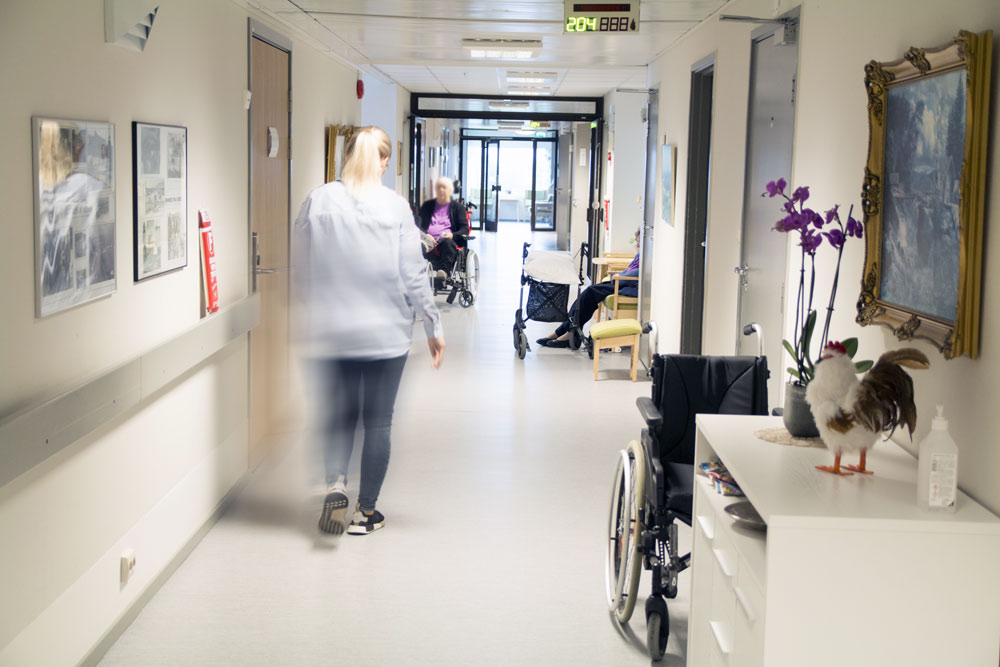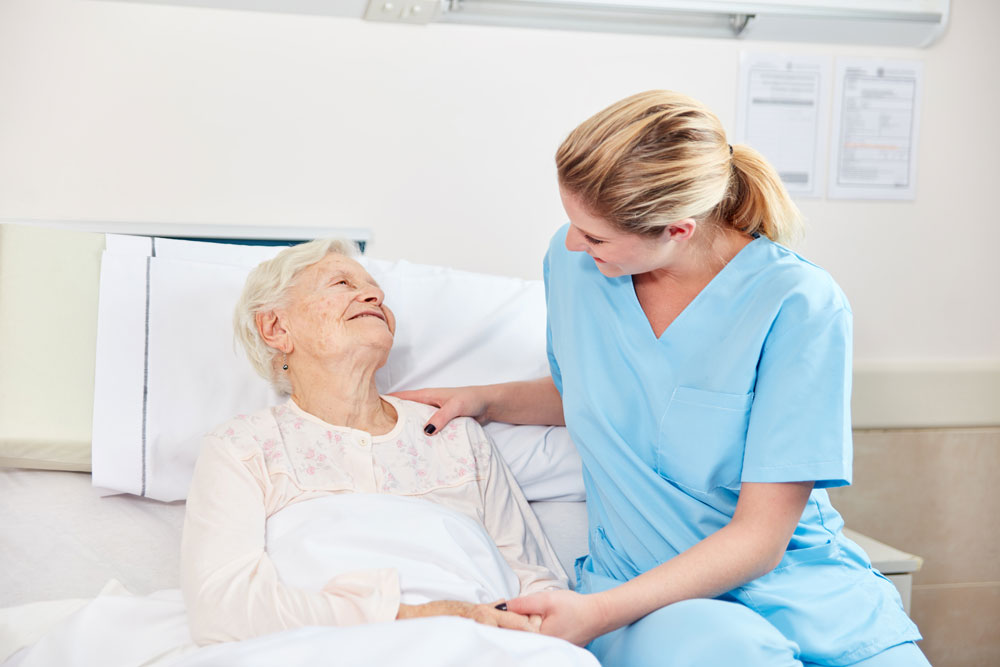How under-stimulation and mental institutional damage affect people's health and well-being
This article is written from a Swedish perspective. Hopefully, it can inspire interested people from other countries.
What happens when all days are alike and others plan the time. When the food is served, the choice of clothes is made by someone else and the day mostly becomes a longing for the evening when you get to go to bed and sleep, it affects the well-being. It is important to pay attention to whether any of the residents show signs of institutional damage. In this way, it is possible to prevent unnecessary suffering. It is important to be aware of the symptoms of understimulation and to take measures to provide sufficient stimulation and activities to promote health and well-being among individuals, especially older adults and people with disabilities. Creating a stimulating environment with varied activities and social interactions can help counteract understimulation and promote a healthy lifestyle.
 Foto: Mostphotos
Foto: MostphotosInstitutional Harm from a Psychological Perspective
Many people who move into care homes stop planning their time. Those who are institutionally harmed from a psychological perspective have received so much professional support that they cannot manage on their own when personal responsibility is required. As others take control of their time, the person becomes paralyzed or anxious when forced to make choices.
This is something that is well known from psychiatric long-term care, but the effects are the same in other care institutions where staff control the planning.
Living in a nursing home often also involves understimulation. The symptoms of understimulation can resemble those that occur in burnout. Similarly, it can make the person feel low or depressed. Sometimes the person can be perceived as zombie-like, with repetitive motor patterns such as sitting and rocking or sleeping all day.
It is easy to end up in a situation where the time horizon is the next meal or going to bed. No longer knowing which day it is can contribute to confusion and even to the person being perceived as demented when in fact the person is depressed. It also happens that people are placed in dementia care on false grounds.
Unfortunately, there is little written about this phenomenon. It would be interesting to hear others' reflections on what it looks like and what we can do to help people suffering from this?
Symptoms of Institutional Harm from a Psychological or Psychiatric Perspective
They can be difficult to detect and can vary depending on the individual's mental health and background.
Behavioral changes: Sudden changes in behavior, such as increased irritability, agitation or apathy, may be signs of increased stress or discomfort in the elderly person.
Sleep problems: Difficulties falling asleep or maintaining sleep can be an indication of increased anxiety, worry, or mental discomfort.
Impaired cognition: If the elderly person's cognitive functions worsen or if there is confusion or disorientation, it may be a sign of a negative impact on their mental health and well-being.
Self-harming behavior: If the elderly person expresses thoughts or shows behaviors that could be harmful to themselves, such as self-harming behavior or the desire to harm themselves, this should be taken seriously and handled immediately.
Social isolation: A reduction in social interaction and participation in activities may indicate that the elderly person feels lonely or is not comfortable in their environment.
Anxiety or depression: Expressions of feelings such as anxiety, depression or hopelessness may be signs that the elderly person is experiencing mental suffering as a result of institutional harm.
Increased need for medication: If the elderly person suddenly shows an increased need for anti-anxiety or antidepressant medications, this may be a sign that their mental health is being negatively affected by the environment.
Increased agitation or anger: An increase in irritated behavior, such as restlessness, confusion or aggression, may be a reaction to discomfort or inappropriate conditions in the nursing home environment.
It is important that the staff at the nursing home are aware of these symptoms and act proactively to prevent and address any institutional harm from a psychological or psychiatric perspective. Providing adequate psychosocial support and creating a safe and supportive environment can help reduce the risk of negative mental consequences for the elderly.
Understimulation: Symptoms and How It Affects People
When a person does not receive enough stimulation, it can affect their mental, emotional and physical health in many ways.
Lack of interest or engagement: People who are understimulated may show a lack of interest in activities they normally enjoy. They may also have difficulty engaging in new activities or interactions.
Increased fatigue and sleepiness: Understimulation can lead to increased fatigue and sleepiness because the brain does not receive enough stimulation to be alert and active.
Lack of motivation: People who are understimulated may show a lack of motivation and initiative to participate in activities or perform tasks.
Cognitive difficulties: Deficits in concentration and memory problems can occur when the brain is not sufficiently stimulated. This can affect the ability to solve problems, make decisions and perform daily tasks.
Mood changes: Understimulation can lead to irritability, anxiety or low mood in some individuals. They may also experience feelings of restlessness or boredom.
Increased risk of depression: If understimulation persists over a longer period, it can increase the risk of depression and other mental health problems.
Seeking stimulation through unwanted behaviors: Some individuals may seek stimulation through unwanted behaviors, such as overeating, compulsive gambling or substance abuse.
Physical symptoms: Understimulation can also affect the body physically, which can lead to increased muscle stiffness, decreased flexibility and general discomfort.
Reflection questions - psychological institutional harm
Care staff:
- What do you do to make the resident involved in the planning?
- Do you have residents who show signs of understimulation?
- What can you do to make them more active?
Manager, nurse, occupational therapist and physiotherapist:
- What do you do to identify people who are understimulated?
- Do you have people living in dementia care who do not have dementia?
- If so, how do you ensure that they get the right stimulation for their needs?
Residents and relatives:
- Does your relative receive the stimulation needed to be involved?
Erland Olsson
Specialist Nurse
Sofrosyne
Better care every day

Aktuellt i media
- 2025-09-01 04:00 09 Mat och måltid
-
2025-08-29 04:00
04 Bemötande
Working with participation is an obvious quality factor in all care for fellow human beings.
info Foto: Mostphotos
Foto: Mostphotos - 2025-08-25 04:00 14 Läkemedelshantering
-
2025-08-21 04:00
06 Dokumentation
With a good implementation plan, the chances increase for our care to be good!
info Foto: Mostphotos
Foto: Mostphotos - 2025-08-18 04:00 16 Sjukdom och död
- 2025-06-26 04:00 04 Bemötande





